The owner of Pierogies Plus touts that if you want more authentic pierogies, you’ll have to go to Warsaw or Krakow, Poland.
Helen Mannarino opened Pierogies Plus 16 years ago in a former gas station on Island Avenue in McKees Rocks, Pa., just outside of Pittsburgh. Pierogies are ravioli-like pasta filled with potatoes, meat, cheese or other stuffing.
Mannarino began making pierogies when she was a young girl growing up in Warsaw, Poland, and continued making the stuffed dumplings after immigrating to the United States more than 30 years ago.
When she first came to the States, Mannarino made pierogies in her kitchen and gave them to friends and neighbors. Before long, she was selling dozens of pierogies from her home.
With so many requests for pierogies, Mannarino decided she’d better open a shop with a commercial kitchen before the health department came after her. She took classes to learn how to operate a business and converted the old gas station that she and her husband owned into a pierogi factory.
With used equipment she purchased at auctions and the help of a friend, Mannarino opened Pierogies Plus on June 5, 1991.
Steady Growth
The shop was open only two days a week at that time, and Mannarino and her friend did all of the work, mashing and peeling 50 pounds of potatoes each week. They made traditional pierogies, including potato and cheese, meat, plain potato and potato and sauerkraut.
It wasn’t long before Pierogies Plus became well known in the Pittsburgh area and people began buying up the homemade, overstuffed dumplings.
To keep up with the demand, Mannarino hired help. Nearly all of her 12 staff members emigrated from Eastern Europe – Poland, Russia and the Ukraine – and each has years of pierogi-making experience.
Mannarino extended the shop’s hours to five days a week, Monday through Friday, and expanded its menu as customers requested different types of pierogies. They wanted plain sauerkraut, apricot, jalapeno and potato and other untraditional fillings.
“People were asking for it,” Mannarino said. All the different kinds of pierogies “came that way. If you ask for it, we’ll try it.”
Today, the staff at Piergoies Plus peels and mashes 1,000 pounds of potatoes and hand-makes 200 to 300 dozen pierogies during a “slow week.” They also make other such Eastern European dishes as stuffed cabbage and haluski.
Making Upgrades
Until recently, all of the food at Pierogies Plus was made in a small, discrete kitchen and all of the potatoes were boiled in pots on an old iron stove.
The steady increase in business allowed Mannarino to add a larger kitchen onto her building and purchase new equipment, which has helped improve efficiency.
Mannarino also installed a large cooler to freeze pierogies for shipment. She hopes to increase her Internet sales and sell more of her food to restaurants and markets at wholesale.
“Right now, we’re at about 80 percent retail and 20 percent wholesale,” she said. “I’d like to reverse that. If I have more wholesales, I can have more steady work for the employees.”
With all the changes, Mannarino even considered purchasing a machine that would cut and pinch the pierogies. But to make the machine work Mannarino would have had to change her recipe.
“The dough would have been harder, and they would have had less filling,” Mannarino said. “It would be like Mrs. T’s,” a brand of frozen pierogies that are offered in many stores.
Instead, Mannarino decided to stick to the traditional way of making pierogies.
“Each individual pierogi is pinched by hand,” Mannarino said. “Each [staff member] handles that one pierogi many times.”
Pinching Pierogies
A typical day at Pierogies Plus starts at night when baker Volodymyer Petrovych, who emigrated from the Ukraine nearly five years ago, begins peeling and mashing the potatoes and mixing the dough.
Petrovych, 35, works from about 10 p.m. to the wee hours of the morning, making sure everything is ready when Mannarino and the other women arrive at 7 a.m. to cut out the dough and pinch the pierogies.
“I love it,” Petrovych said of his job. “It’s like you’re doing it in your own house. It’s like family.”
When the women arrive to make the pierogies, they greet Petrovych and one another. Then they hustle to the kitchen to begin work.
As they roll a cookie-cutter over the dough and fill the dumplings with stuffing, the women chat with one another in Russian, Polish and Ukrainian. While the languages are different, many of the words are the same, Mannarino said.
Once the pierogies are pinched, they are put into a giant boiler to cook. The pierogies stay in the water for just a few minute before being scooped out and placed onto cooling racks. By 11 a.m., the pierogies are done, and the shop opens for business.
As Mannarino looks around at all the pierogies and watches her staff work, she says she can’t help but be thankful for all the blessings in her life.
“I have a strong belief that the Lord helps me with everything,” she said. “Without the Lord, I couldn’t do it.”
For more information, please visit pierogiesplus.com.

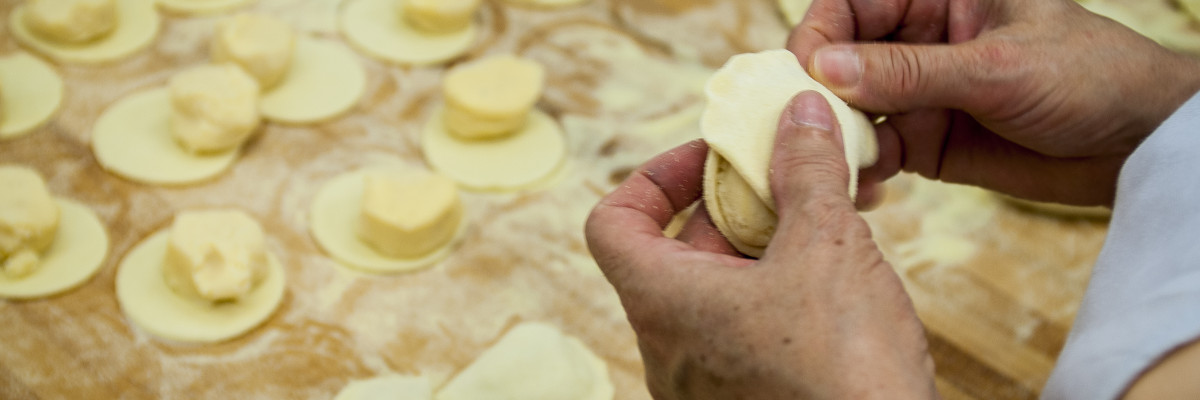

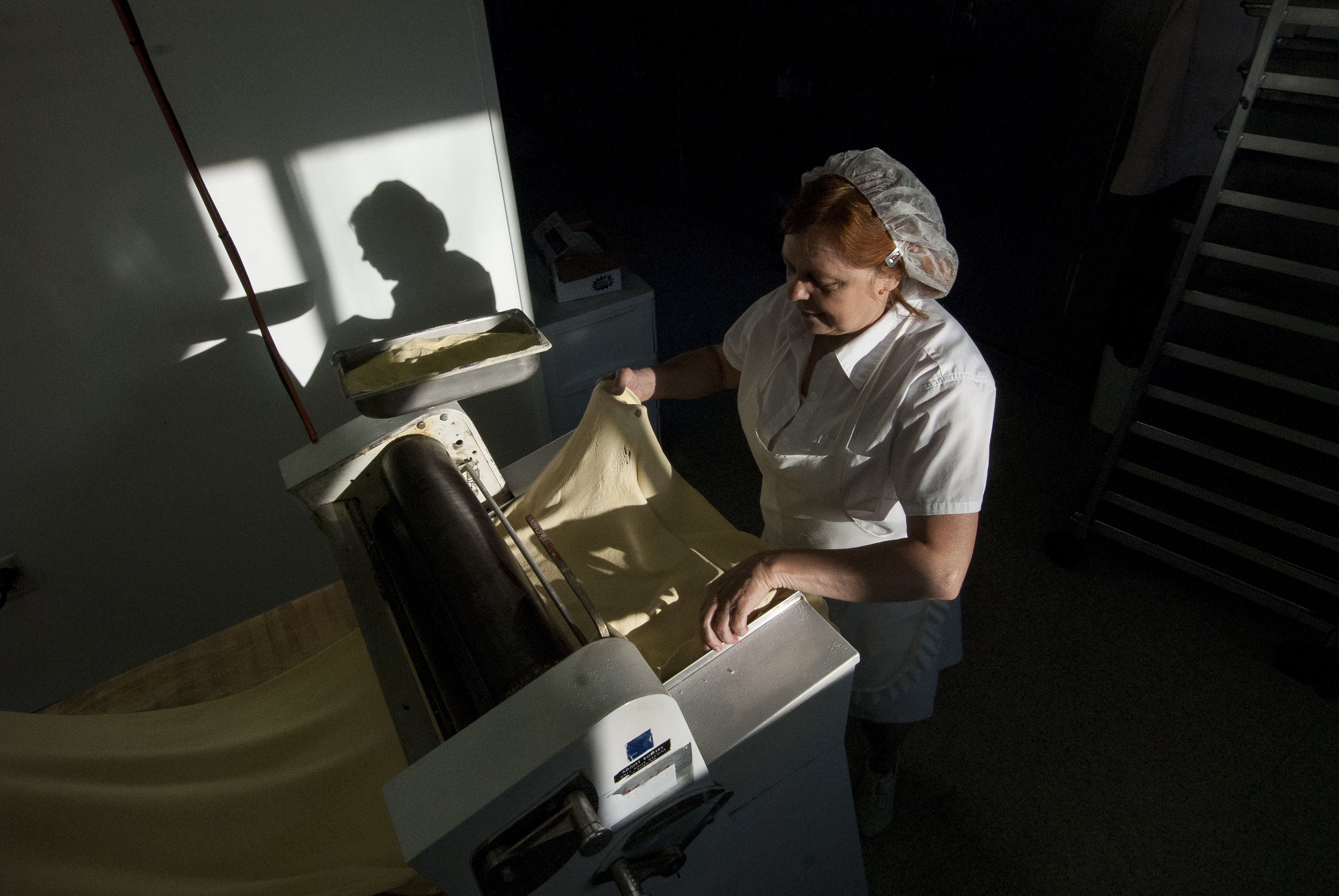
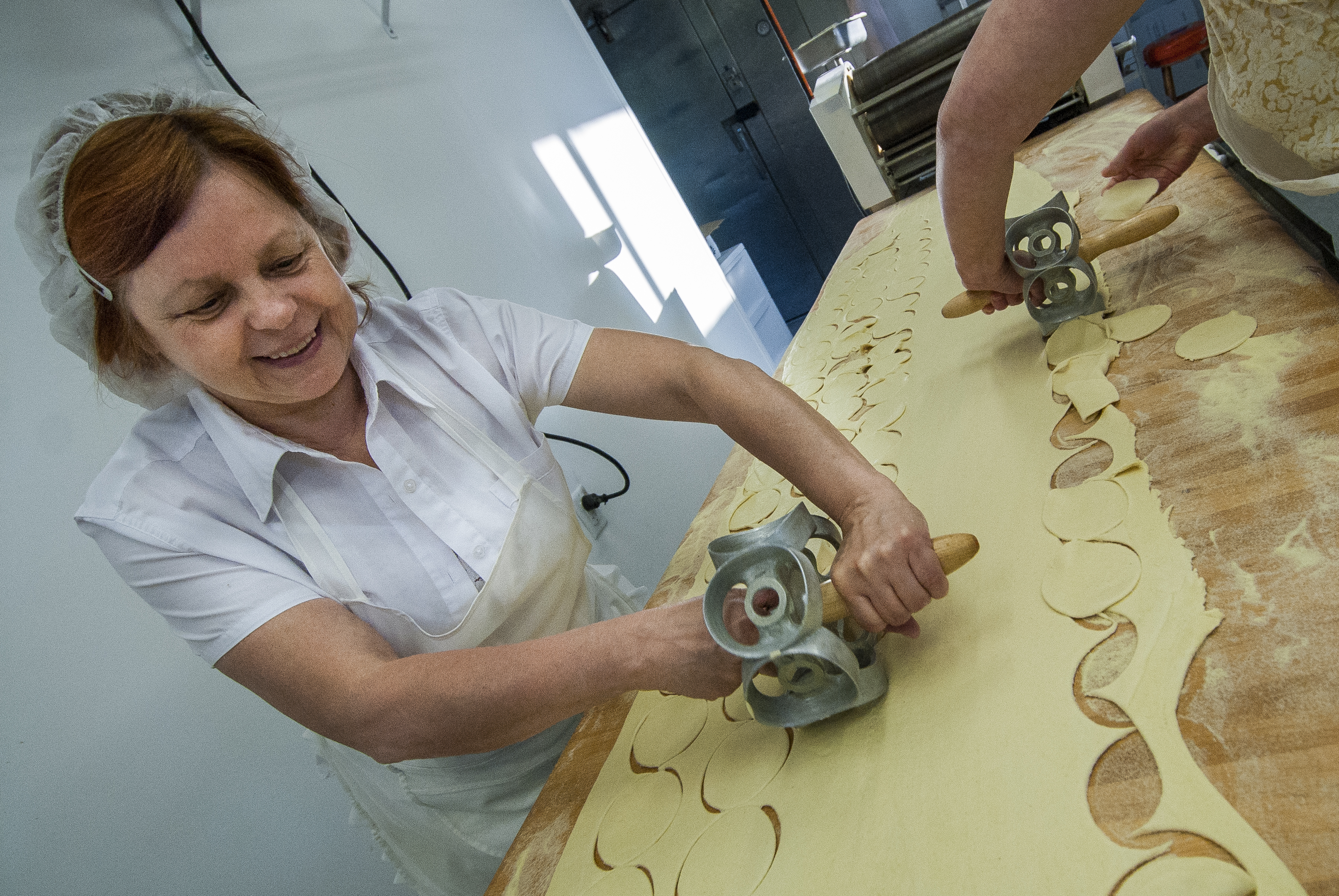
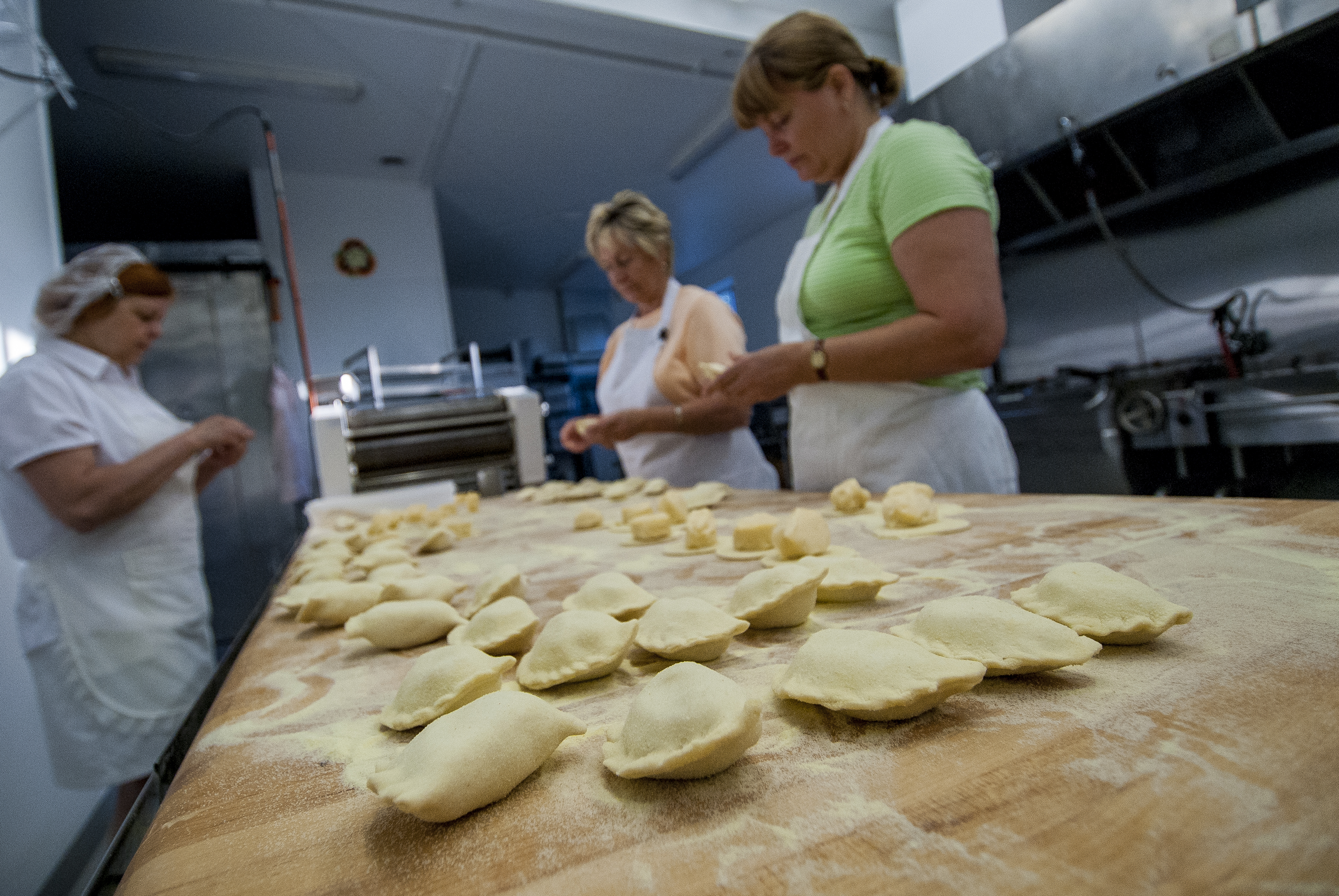
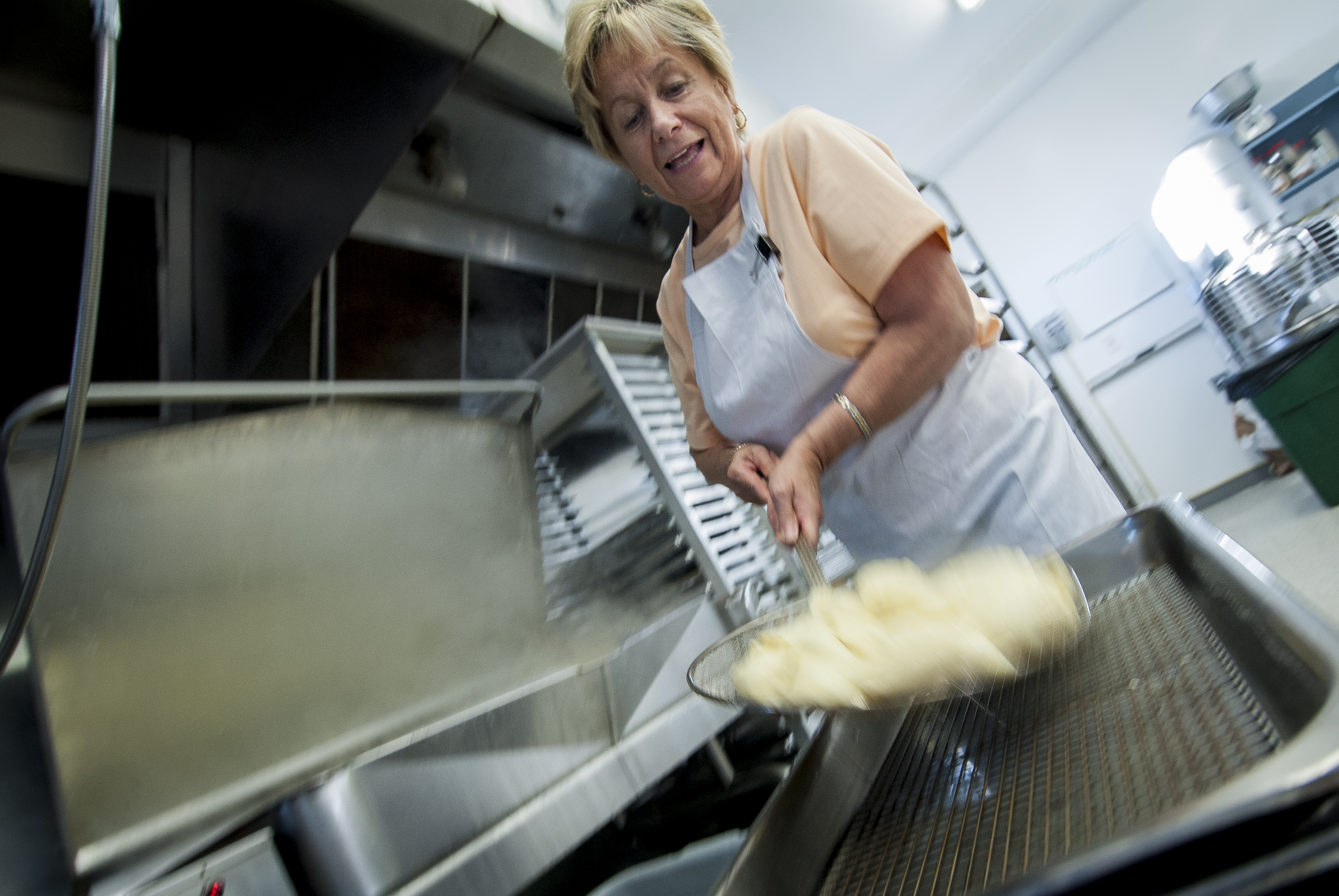
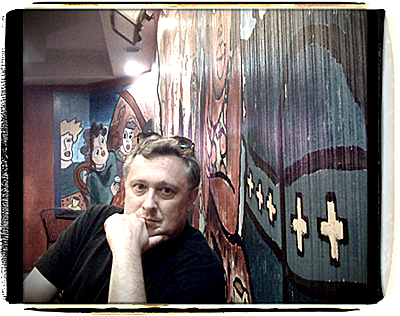 Pete Marovich is a photojournalist based in the Washington D.C. metro area covering the White House and Capitol Hill. He is co-creator of American-Journal Magazine and serves as photo editor.
Pete Marovich is a photojournalist based in the Washington D.C. metro area covering the White House and Capitol Hill. He is co-creator of American-Journal Magazine and serves as photo editor.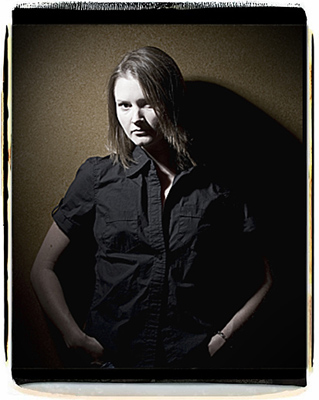 Jenny Jones is the editor and co-creator of American-Journal. She has more than 15 years of experience working for daily newspapers and monthly magazines. She is a freelance writer based in Virginia.
Jenny Jones is the editor and co-creator of American-Journal. She has more than 15 years of experience working for daily newspapers and monthly magazines. She is a freelance writer based in Virginia.
One thought on “Pierogi Heaven Photography by Pete Marovich • Story by Jenny Jones”